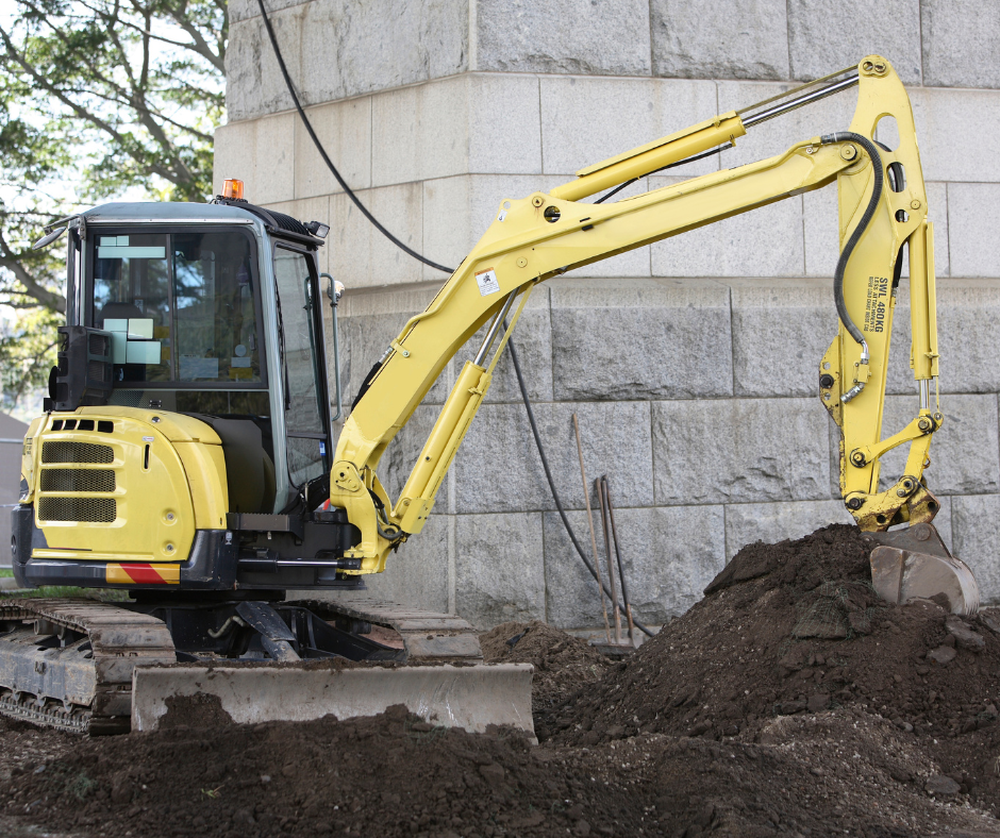What is a Mini Digger?

In the world of construction and landscaping, efficiency and precision are key. One machine that has become indispensable on job sites is the mini digger (also known as a compact excavator). Whether you’re a professional contractor or a DIY enthusiast, understanding the capabilities and uses of a mini digger can significantly enhance your project outcomes. In this article, we will dive deep into what a mini digger is, its common uses, and why it is such a valuable tool in various industries.
What is a Mini Digger?
A mini digger is a small, versatile piece of equipment used for excavating, digging, and moving materials. Mini diggers typically weigh between 1 to 10 tons, making them lightweight yet powerful for smaller construction and landscaping tasks. These compact excavators are designed to access areas that traditional, larger excavators cannot, making them ideal for urban or confined spaces. They come equipped with a hydraulic system that powers the boom, arm, and bucket for digging and lifting tasks.
Key Features of a Mini Digger:
Compact Size: Typically much smaller than standard excavators, allowing for access to tight or narrow spaces.
Hydraulic System: Provides powerful digging force and precise control.
Versatile Attachments: These machines can be equipped with a range of attachments, such as augers, breakers, and grapples, to suit different tasks.
360-Degree Rotation: Allows for flexible operation in confined areas without needing to reposition the machine frequently.
Ease of Use: Even for first-time operators, mini diggers are relatively easy to handle due to their intuitive controls.
Uses of a Mini Digger
Mini diggers are highly adaptable and can be used across various sectors. Some of the most common uses include:
1. Landscaping
One of the primary uses of a mini digger is in landscaping. Whether you’re digging out a garden pond, removing tree stumps, or levelling terrain, a mini digger can save hours of manual labour. Its small size allows it to navigate through gardens and backyards with ease, making it the perfect choice for residential landscaping projects.
2. Construction
In construction, mini diggers are used for small to medium excavation projects. These machines can dig foundations for buildings, trenches for utility lines, and drainage systems. Their ability to manoeuvre in tight spaces makes them indispensable in urban construction zones where space is limited.
3. Demolition
Despite their small size, mini diggers are often used in light demolition tasks. With the right attachments, such as a hydraulic breaker, they can demolish small structures, concrete pavements, or walls. This makes them ideal for projects where heavy machinery would be too cumbersome.
4. Agriculture
In farming and agricultural settings, mini diggers are employed to dig irrigation channels, clear debris, and prepare land for planting. Their versatility and ability to work in muddy or uneven terrains make them a valuable asset on farms.
Why Should You Use a Mini Digger?
If you're considering hiring or buying a mini digger, here are a few compelling reasons why they are a smart investment:
1. Efficiency
A mini digger can complete tasks much faster than manual labour, saving time and money. Its hydraulic system ensures that even tough ground can be dug quickly and with minimal effort.
2. Versatility
Mini diggers can handle a wide variety of tasks. With interchangeable attachments, a mini digger can be transformed from a digging machine to one that can break concrete, lift heavy loads, or drill holes for fencing.
3. Cost-Effective
For smaller projects, renting or purchasing a mini digger is much more cost-effective than using larger, more expensive machinery. Their fuel consumption is also lower, reducing operating costs over time.
4. Reduced Environmental Impact
Because of their smaller size and more efficient fuel use, mini diggers are generally more environmentally friendly than larger equipment. They require less space to operate, reducing damage to the surrounding area.
5. Manoeuvrability
The compact size and 360-degree rotation make mini diggers extremely manoeuvrable in tight spaces. Whether working in a residential backyard or a crowded construction site, mini diggers can easily navigate through obstacles.
Factors to Consider When Hiring a Mini Digger
Before hiring a mini digger for your project, consider the following factors to ensure you get the best machine for your needs:
Weight and Size: Ensure the mini digger is appropriately sized for the task. A smaller model may struggle with heavy-duty tasks, while a larger model might be too cumbersome for tight spaces.
Attachments Needed: Determine the right attachments (e.g., buckets, augers, breakers) for your project. This can greatly affect the efficiency and cost-effectiveness of the job.
Operator Skill Level: While mini diggers are easy to operate, consider hiring an experienced operator if you’re unfamiliar with machinery. This can prevent costly mistakes and accidents.
Conclusion
A mini digger is a compact, versatile, and powerful piece of machinery that is crucial for small-scale excavation and landscaping projects. Its ability to access tight spaces, along with its efficiency and wide range of applications, makes it a popular choice for contractors and DIYers alike. Whether you’re breaking ground for a new construction project, digging trenches, or landscaping your garden, a mini digger can make the job faster, easier, and more cost-effective.
If you’re planning a project that involves digging, earthmoving, or demolition, a mini digger could be the perfect solution. Be sure to assess your project needs carefully and choose the right attachments to maximize its potential.
Author: Spencer Murphy
14 October 2024
Still have questions?
You can send us message, call or chat live with an expert for personalised advice.